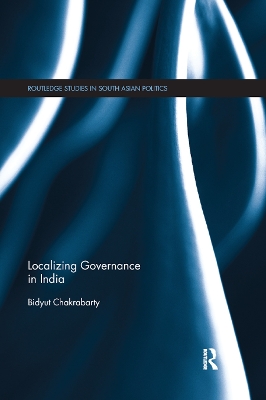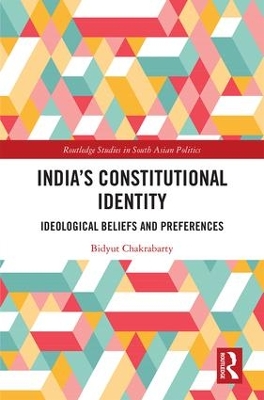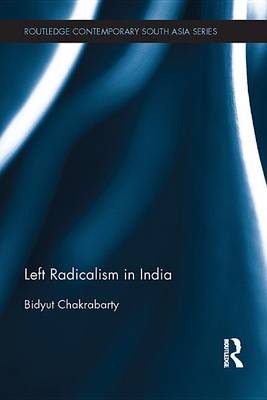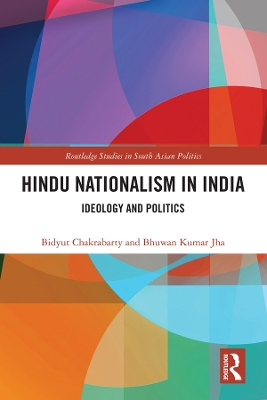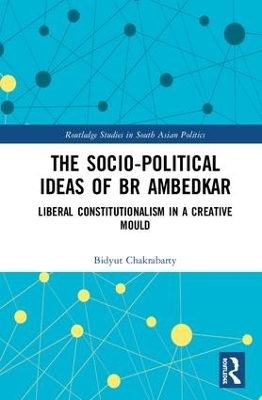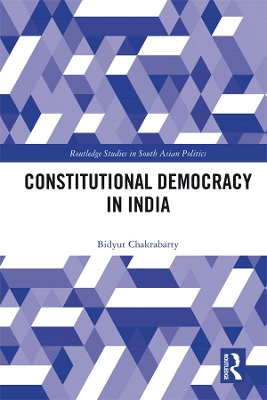Routledge Studies in South Asian Politics
6 total works
Participatory governance has a long history in India and this book traces historical-intellectual trajectories of participatory governance and how older Western discourses have influenced Indian policymakers. While colonial rulers devolved power to accommodate dissenting voices, for independent India, participatory governance was a design for democratizing governance in its true sense. Participation also acted as a vehicle for localizing governance.
The author draws on both Western and non-Western theoretical treatises and the book seeks to conceptualize localizing governance also as a contextual response. It also makes the argument that despite being located in different socio-economic and political milieu, thinkers converge to appreciate localizing governance as perhaps the only reliable means to democratize governance. The book aims to confirm this argument by reference to sets of evidence from the Indian experience of localizing governance.
By attempting a genealogy of participatory governance in the West and in India, and an empirical study of participatory governance in India, the book sheds light on the exchange of ideas and concepts through space and time, thus adding to the growing body of literature in the social sciences on ‘conceptual flow’. It will be of interest to political scientists and historians, in particularly those studying South Asia.
An analysis of selective aspects of India’s constitutional identity, this book provides an analytical account of the changing and changed texture of India’s constitutional identity bearing in mind the historical context in which it is articulated.
The book conceptualizes the gradual evolution of an idea by tracing the history of India’s constitutionalism with reference to its conceptual roots, historical antecedents and the landmark judicial pronouncements in which the concern for its retention and protection is always privileged. The author examines specific constitutional designs that the 1950 Constitution of India put in place and argues that constitutional identity, despite being drawn on specific constitutional provisions, is also changeable in view of the rapidly transforming socio-economic milieu. He demonstrates that there are numerous instances where India’s constitutional identity has undergone a metamorphosis in circumstances where newer politico-ideological values and norms are privileged.
A valuable addition to the literature on constitutionalism and constitutional practices in general and their manifestation in India's democratic experiences, in particular, this book will be of interest to academics in the fields of Government, Political Science, Law and Jurisprudence, Constitutional and Legal History and Asian Studies.
Left radicalism in India was rooted in the nationalist movement and was set in motion in the 1920s with the formation of the communist party. The communist movement manifested itself differently in each phase of India’s political history and Communism continues to remain a meaningful alternative ideological discourse in India.
This book examines left politics in India focusing on its rise, consolidation and relative decline in the present century. Left radicalism in India is a distinct ideological phenomenon which is articulated in two complementary ways: while the parliamentary left remains social democratic in character, its bête noire, the left wing extremists, continue to uphold the classical Marxist, Leninist and Maoist notion of violent revolution. By concentrating on the nature and also activities of these two versions of left radicalism, this book is a thorough study of the phenomenon. The author analyses the states of Kerala, West Bengal and Tripura and presents a variety of case studies of communist movements. He argues that the political power of the left parties depends on the degree to which they have built organizational strength, political hegemony and a broad social base through legal and extra-parliamentary struggles.
An in-depth study of socio-economic circumstances that remain critical in conceptualizing radical extremism, Left Radicalism in India will be of interest to those studying Indian Politics, South Asian History, Development Studies and Global Politics.
This book offers an in-depth study of right-wing politics in India by analysing the shifting ideologies of Hindu nationalism and its evolution in the late nineteenth century through to twenty-first century.
The authors provide a thorough overview of the chronological evolution of Hindu nationalist organizational outfits to reveal how Hindu nationalist ideology has adapted in ways that have not always corresponded with the orthodox Hindu nationalist position. An examination of the overriding preference for Hindu nationalism demonstrates how it has flourished and continues to remain relevant in contemporary India despite being marginalized at the dawn of India's independence. The book demonstrates that Hindu nationalism is a context-driven ideological device which is sensitive to the ideas and priorities that gradually gain salience. It also explores Hindu nationalism as a vote-catching device, especially from the late twentieth century onwards.
Providing a nuanced analysis of Hindu nationalism in India as a constantly evolving phenomenon, this book will be of interest to researchers on Asian political theory, nationalism, religious politics and South Asian and Indian politics.
Dr. Bhimrao Ramji Ambedkar (1891–1956), popularly known as Babasaheb stands out for his relentless battle against caste discrimination. He was a voice for the marginalized of India’s demography that remained peripheral due to well-entrenched socio-economic and political prejudices.
This book is an analytical account of how Ambedkar’s socio-political ideas evolved as part of his wider politico-ideological challenge against self-motivated designs for exploitation of human beings by human beings. The author contends that it was an ideological discourse that he built in a context when dominant nationalist viewpoints seem to have hardly left space for any other discourse to grow. The book argues that Ambedkar’s socio-political ideas were an outcome of his personal experiences of social atrocities which were justified as integral to the caste system. The book comprises six substantial chapters which delve into the socio-political ideas of BR Ambedkar, concentrating on those sets of ideas through which he established his claim as an original thinker in opposition to the dominant nationalist discourse. Unlike the most conventional studies of Ambedkar’s thoughts and ideas, the book provides a new methodological tool to decipher their conceptual roots. It is therefore argued that Babasaheb’s unique conceptualization of social justice was not just an outcome of his existential existence of being a Dalit, but an offshoot of his own understanding of liberalism as a mode of emancipating human beings from shackles of authority, power and domination.
Examining Ambedkar’s ideas, the book charts and examines the growth and consolidation of constitutional democracy in India since it was inaugurated with the acceptance of the 1950 Constitution. It will be of interest to scholars in the fields of Indian political theory, South Asian politics and history.
Constitutional democracy is both a structure of governance and a way of providing an ideological perspective on governance. The 1950 Constitution of India established constitutional democracy in India and the narrative of the rise and consolidation of constitutional democracy in India cannot be understood without comprehending the politico-ideological processes that consolidated simultaneously both colonialism and constitutional liberalism.
This book examines the processes leading to constitutionalizing India and challenges the conventional idea that the Constitution of India is a borrowed doctrine. A careful study of the processes reveals that the 1950 Constitution was the culmination of an ideational battle that had begun with the consolidation of the British Enlightenment philosophy in the early days of British paramountcy in India. The book therefore argues that constitutionalizing endeavour in India had a clear imprint of ideas which had its root in this philosophy. The study reveals a striking continuity of the same kind of ideological sentiments when the nationalists devised their own constitutionalizing design, visible in the 1928 Motilal Nehru report and which reappeared in the 1945 Sapru Committee report. Deviating from the conventional study of constitutional evolution of a polity, which is generally legalistic, this book explores the processes since the beginning of colonial rule in India which led to the conceptualization of constitutional democracy in a milieu engaging with arguments formulated by James and JS Mill.
A detailed analysis of the roots of constitutional and political liberalism in India, this book sheds light on the material surrounding India’s constitutional development. It will be of interest to scholars in the field of Indian Political Theory, South Asian Politics and History.
